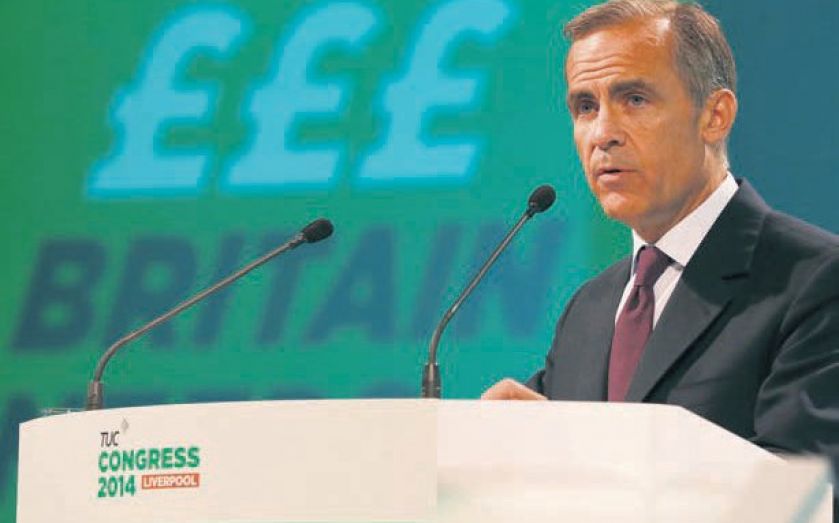Carney: Low wages have brought surge in new jobs

UNEMPLOYMENT has dived thanks to low wages, Bank of England governor Mark Carney said yesterday, arguing that poor pay growth had had some positive effects in the UK.
But as joblessness has fallen rapidly, pay is likely to start rising at last as firms have to compete for staff once more.
“Although the adjustment has been painful, trading off lower productivity and wages for much higher employment, on balance it provides a solid foundation for a durable expansion,” he told the Trades Union Congress in Liverpool.
And Carney hinted that there were signs the foundation was indeed durable – and rising wages could mean the first interest rate hike would come early next year.
“With many of the conditions for the economy to normalise now met, the point at which interest rates also begin to normalise is getting closer,” the governor said.
The boom in jobs has particularly helped women and older workers, who have flooded into the labour market in unexpectedly huge numbers.
Since the crash, an unpredicted extra 1.5m people have joined the workforce.
As a result of this flood of staff, wages have been kept down, and firms have hired cheap workers instead of investing in capital.
But this too is likely to change as wages start rising.
Carney views the rise in hiring despite the low wages as a positive sign for the future, “because keeping people in work through a recession maximises the prospects for individuals and the economy.”
And the UK is in a better position than the US or Europe – throughout the crash and recovery, the UK has seen fewer people out of work than either of those major economic blocs.
Carney also said the Bank of England would do its bit to push up wages, committing to paying all its workers at least a “living wage”, rather than the minimum wage.